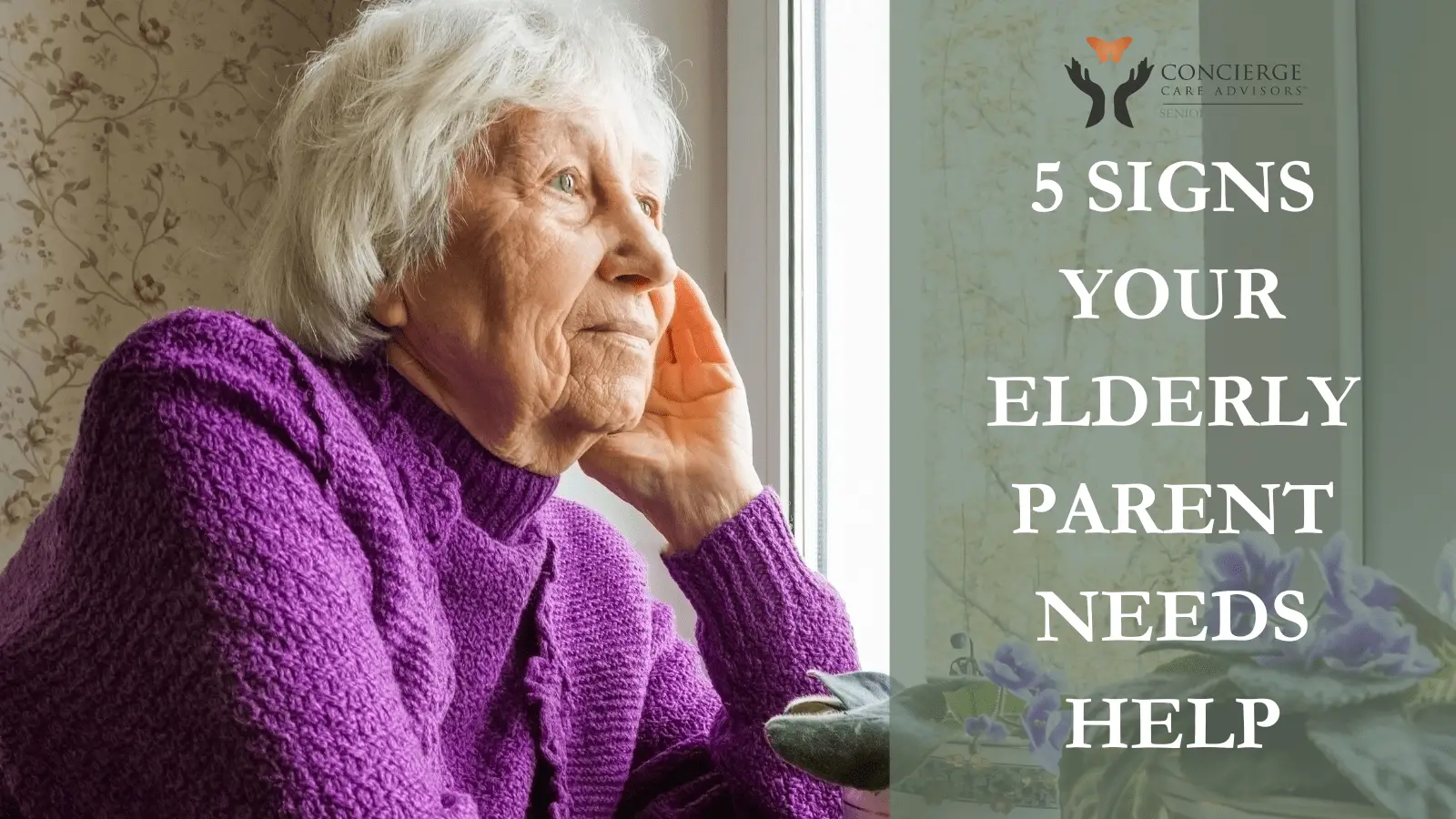5 Signs Your Elderly Parent Needs Help
As our loved ones age, it becomes crucial to monitor their well-being and safety. It can be hard for an elderly parent to accept that they need more help. However, noticing this is important for their quality of life. Here, we explore five key indicators that your elderly parent might require additional care and support. By understanding these signs, you can take proactive measures to create a safe and fulfilling environment for them.
1. Decline in Personal Hygiene
One of the most apparent signs that a senior citizen may need help is a noticeable decline in their personal hygiene. This can manifest in several ways:
- Unkempt Appearance: If your parent is wearing dirty clothes, has unwashed hair, or neglects grooming habits, it may indicate they are struggling with daily self-care.
- Body Odor: Persistent body odor or an unusual smell in their home may suggest difficulties in maintaining personal cleanliness.
- Neglected Oral Hygiene: Poor dental hygiene, such as bad breath or visible dental issues, can be a sign of neglect.
A decline in personal hygiene often points to physical limitations, cognitive decline, or depression. Addressing this issue early can prevent further complications and ensure your parent maintains their dignity and health.
2. Changes in Mobility and Coordination
As individuals age, physical abilities often diminish. However, a significant and sudden change in mobility or coordination can be a red flag. Watch for:
- Frequent Falls: If your parent is experiencing frequent falls or has difficulty standing up, walking, or sitting down, it could indicate muscle weakness, balance issues, or other underlying health problems.
- Difficulty with Stairs: Struggling with stairs or other physical activities that were previously manageable is a sign that they might need assistance.
- Unsteady Gait: An unsteady or shuffling walk can suggest balance problems or neurological issues.
These changes can severely impact a senior citizen’s safety and independence. Consulting a healthcare professional and considering mobility aids or home modifications can significantly improve their quality of life.
3. Cognitive Decline and Memory Issues
Cognitive decline is a common aspect of aging, but significant memory issues or confusion can indicate more serious problems such as dementia or Alzheimer’s disease. Key signs include:
- Forgetfulness: Frequently forgetting appointments, taking medication, or important dates can be concerning.
- Disorientation: Getting lost in familiar places or being confused about time and place are alarming signs.
- Poor Judgment: Making unusual decisions or exhibiting poor judgment, such as giving away large sums of money to strangers, can signal cognitive decline.
Early detection and intervention can slow the progression of cognitive diseases and enhance a senior citizen’s well-being through appropriate medical care and supportive environments.
4. Social Withdrawal and Isolation
Social interaction is vital for mental and emotional health. If your elderly parent shows signs of social withdrawal or isolation, it may indicate they need help. Be alert to:
- Loss of Interest: A noticeable lack of interest in activities they once enjoyed, such as hobbies or social gatherings.
- Decreased Communication: Reduced phone calls, visits, or reluctance to engage in conversations can suggest loneliness or depression.
- Neglecting Relationships: Avoiding family and friends, or a sudden change in social circles, can be a sign of underlying issues.
Encouraging social engagement and getting involved with senior living communities with vibrant social programs can greatly enhance a senior’s quality of life and reduce feelings of isolation.
5. Poor Nutrition and Weight Loss
Maintaining proper nutrition is essential for health and vitality. If your parent is experiencing poor nutrition or unexplained weight loss, it is a serious concern. Look for:
- Empty or Expired Food: A refrigerator filled with expired or insufficient food can indicate difficulty shopping or preparing meals.
- Weight Loss: Unintended weight loss or signs of malnutrition, such as frailty or weakness, should not be ignored.
- Difficulty Eating: Problems with chewing, swallowing, or a noticeable decrease in appetite are critical indicators.
Ensuring your parent has access to nutritious meals, possibly through meal delivery services, hiring a caregiver, or transitioning to a senior living community with dining services, can prevent further health decline.
Taking Action
Recognizing these signs is the first step towards ensuring your elderly parent receives the help they need. Here are some practical steps to take:
Open Communication
Initiate a compassionate and honest conversation with your parent about your observations and concerns. Approach the topic with empathy and respect, ensuring they feel heard and understood.
Consult Professionals
Engage with healthcare professionals, such as geriatricians, social workers, and senior care advisors, to assess your parent’s needs and explore the best care options.
Explore Senior Living Options
Research and visit senior living communities that offer the level of care your parent requires. Look for facilities that provide a safe, comfortable, and engaging environment tailored to their specific needs.
Provide Support
Offer your support in managing daily tasks, whether through direct involvement, hiring in-home care, or arranging for community services that cater to seniors.
You’re Not Alone
Reach out to Concierge Care Advisors for free caregiver resources, advice, and senior placement and referral services. Our Expert Advisors can perform free home safety inspections throughout the greater Seattle area, point you to local community resources, and work with you to find senior living options that meet your loved ones’ needs, at no cost to you. We’re here to give you peace of mind.
Caring for an elderly parent is a significant responsibility that requires vigilance and compassion. By identifying the signs that a senior citizen needs extra help and taking appropriate action, you can ensure their safety, well-being, and happiness. Remember, seeking assistance and utilizing available resources can make this journey more manageable for both you and your loved one.

























